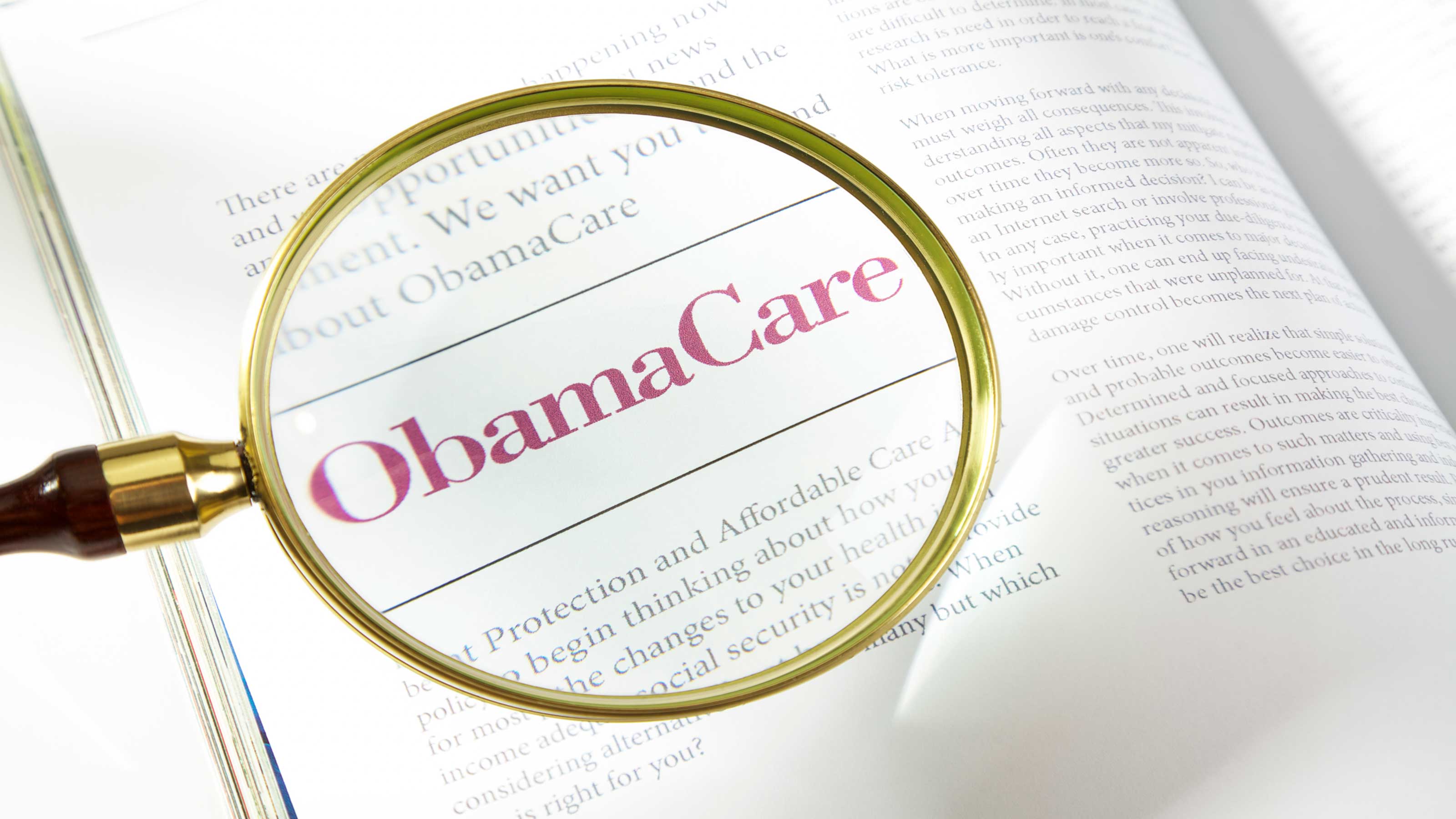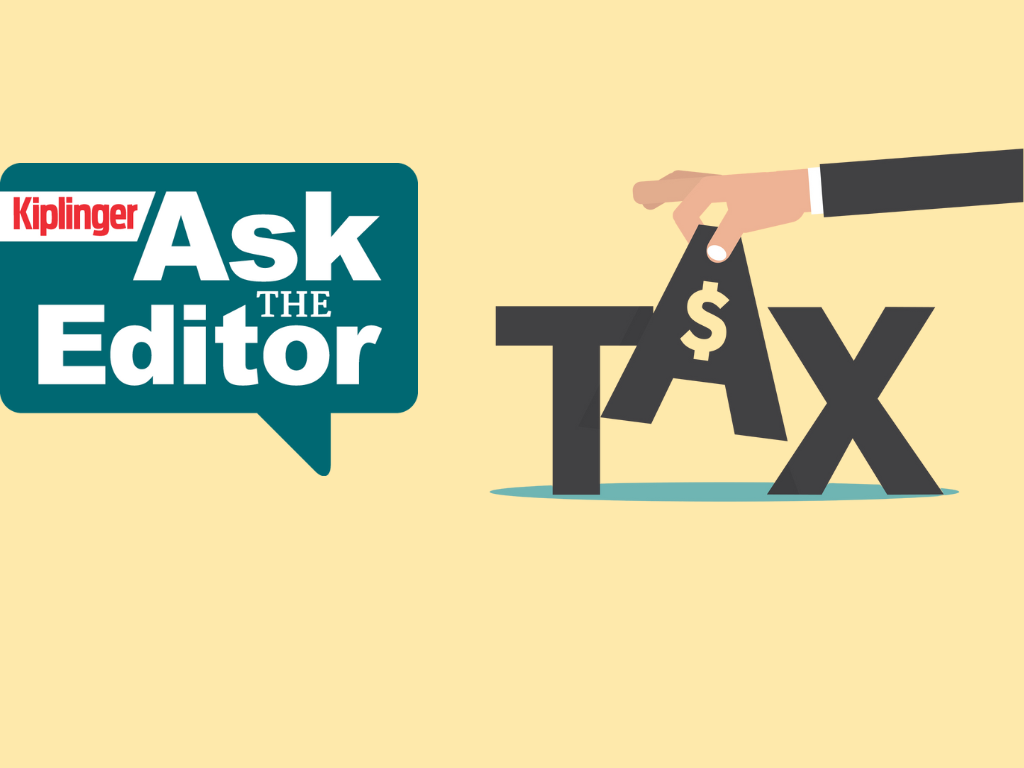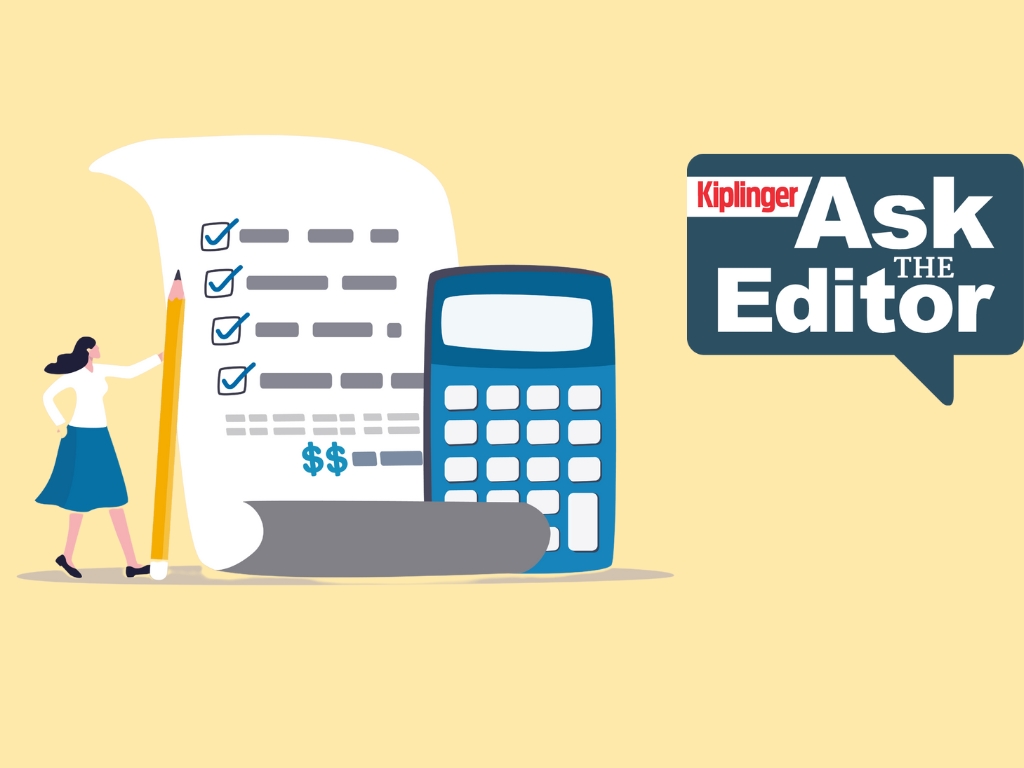Tax Rule Change Could See Millions Lose Health Insurance
Unless Congress extends easings to the health premium tax credit, a popular Obamacare subsidy, millions of people could lose their health insurance.


Profit and prosper with the best of Kiplinger's advice on investing, taxes, retirement, personal finance and much more. Delivered daily. Enter your email in the box and click Sign Me Up.
You are now subscribed
Your newsletter sign-up was successful
Want to add more newsletters?

Delivered daily
Kiplinger Today
Profit and prosper with the best of Kiplinger's advice on investing, taxes, retirement, personal finance and much more delivered daily. Smart money moves start here.

Sent five days a week
Kiplinger A Step Ahead
Get practical help to make better financial decisions in your everyday life, from spending to savings on top deals.

Delivered daily
Kiplinger Closing Bell
Get today's biggest financial and investing headlines delivered to your inbox every day the U.S. stock market is open.

Sent twice a week
Kiplinger Adviser Intel
Financial pros across the country share best practices and fresh tactics to preserve and grow your wealth.

Delivered weekly
Kiplinger Tax Tips
Trim your federal and state tax bills with practical tax-planning and tax-cutting strategies.

Sent twice a week
Kiplinger Retirement Tips
Your twice-a-week guide to planning and enjoying a financially secure and richly rewarding retirement

Sent bimonthly.
Kiplinger Adviser Angle
Insights for advisers, wealth managers and other financial professionals.

Sent twice a week
Kiplinger Investing Weekly
Your twice-a-week roundup of promising stocks, funds, companies and industries you should consider, ones you should avoid, and why.

Sent weekly for six weeks
Kiplinger Invest for Retirement
Your step-by-step six-part series on how to invest for retirement, from devising a successful strategy to exactly which investments to choose.
The health premium tax credit (PTC) is almost 13 years old. Thanks to Obamacare, eligible individuals who otherwise can’t get affordable coverage through their employers can purchase coverage from the marketplace and qualify for the PTC to reduce their monthly premiums. People who can get affordable health coverage through their employers don't qualify for the PTC, nor do individuals who are eligible for Medicare, Tricare, Medicaid or other federal health insurance programs.
Temporary PTC easings are ending
Prior to 2021, the PTC was available only to people with modified adjusted gross incomes (AGI) ranging from 100% to 400% of the federal poverty guidelines, who bought insurance through the marketplace, such as on healthcare.gov, and who met certain other rules. Modified AGI for this purpose is your AGI plus tax-free interest, nontaxable Social Security benefits and tax-exempt foreign earned income.
During the height of the COVID-19 pandemic, federal lawmakers enhanced the PTC for 2021 and 2022, letting more people qualify for the subsidy. Congress also increased the credit amount for many qualifying individuals. Lawmakers later renewed these enhancements, but made them temporary through 2025.
From just $107.88 $24.99 for Kiplinger Personal Finance
Become a smarter, better informed investor. Subscribe from just $107.88 $24.99, plus get up to 4 Special Issues

Sign up for Kiplinger’s Free Newsletters
Profit and prosper with the best of expert advice on investing, taxes, retirement, personal finance and more - straight to your e-mail.
Profit and prosper with the best of expert advice - straight to your e-mail.
For 2025, individuals with modified AGI over 400% of the federal federal poverty level will qualify for the PTC to the extent that the cost of the benchmark silver plan on the marketplace exceeds 8.5% of their income.
However, beginning in 2026, the rules revert to those that were in place for pre-2021 years, so that only individuals with modified AGI between 100% and 400% of the poverty level will get PTCs. That means that fewer people will qualify for the PTC. Also, the credit amounts for most everyone else who would still qualify for PTCs will be much lower than before, meaning individuals would be paying higher premiums for health insurance.
This will begin to impact people seeking marketplace coverage for 2026 on healthcare.gov later this fall, unless Congress acts to extend the PTC easings. And the impact will continue to be felt for each year thereafter. Letting the PTC enhancements lapse could eventually lead to 3.7 million people losing heath insurance each years because they can't afford the monthly premiums. And this is a conservative figure.
Extending the PTC easings isn't a goal of President Trump or of most congressional Republicans. Even while GOP lawmakers in Washington, D.C., are hard at work on a tax deal to extend expiring provisions in the 2017 Tax Cuts and Jobs Act and to provide additional tax relief, there is silence on the PTC. The House-passed "One Big Beautiful" bill doesn't extend the easings. And though we expect that Senate Republicans will make some changes to the House package, adding PTC relief isn't in the forecast. It's possible that Congress could address PTC relief later on this year in a different tax bill, but that appears to be a longshot.
How does the premium tax credit work?
The PTC is estimated when you go on the marketplace to buy health insurance. The estimated credit for 2026 will be based on your expected 2026 income. To figure this out, you would begin with your 2024 modified AGI and add or substract any expected income changes that you anticipate having for 2026. The lower your modified AGI, the bigger the credit.
Most people who qualify for the PTC will generally elect to have it paid in advance directly to the health insurance company to lower their monthly health insurance premiums. If you opt for this, you must file a federal tax return, even though your income may be below the filing threshold or you expect a refund. You would use IRS Form 8962 to compute the PTC amount, list any advance payments made to the insurer (which you would find on the Form 1095-A that you receive from the health insurance marketplace), and reconcile the two figures. If your PTC exceeds the advance payments, then you can claim the excess PTC on your Form 1040. If the PTC is less than the advances, most people would need to repay part or all of the excess.
Beware of an IRS audit red flag
Erroneous reporting of the PTC on your Form 1040 is an easy red flag for the IRS. Its computers flag filed tax returns showing modified AGIs that exceed the limit to take the PTC. Also, the IRS receives Form 1095-A from the health insurance marketplace that shows which taxpayers have selected to have their PTC paid in advance to reduce monthly premiums, and the amounts of those advance payments. So before you file your Form 1040, double-check that you qualify for the PTC and that you accurately report it.
Also, if you are currently enrolled in marketplace coverage, let the marketplace know of any changes that could affect your 2025 PTC amount. For example, if your lost your job and report lower income, the marketplace will increase the subsidy amount for future months, thus putting more money into your pocket. The exchange will also decrease the subsidy if you report higher income, for example, maybe you sold investment property or you found a new job. Notifying the marketplace now can mitigate surprises when you file your Form 1040 next year.
Related Content
Profit and prosper with the best of Kiplinger's advice on investing, taxes, retirement, personal finance and much more. Delivered daily. Enter your email in the box and click Sign Me Up.

Joy is an experienced CPA and tax attorney with an L.L.M. in Taxation from New York University School of Law. After many years working for big law and accounting firms, Joy saw the light and now puts her education, legal experience and in-depth knowledge of federal tax law to use writing for Kiplinger. She writes and edits The Kiplinger Tax Letter and contributes federal tax and retirement stories to kiplinger.com and Kiplinger’s Retirement Report. Her articles have been picked up by the Washington Post and other media outlets. Joy has also appeared as a tax expert in newspapers, on television and on radio discussing federal tax developments.
-
 Quiz: Do You Know How to Avoid the "Medigap Trap?"
Quiz: Do You Know How to Avoid the "Medigap Trap?"Quiz Test your basic knowledge of the "Medigap Trap" in our quick quiz.
-
 5 Top Tax-Efficient Mutual Funds for Smarter Investing
5 Top Tax-Efficient Mutual Funds for Smarter InvestingMutual funds are many things, but "tax-friendly" usually isn't one of them. These are the exceptions.
-
 AI Sparks Existential Crisis for Software Stocks
AI Sparks Existential Crisis for Software StocksThe Kiplinger Letter Fears that SaaS subscription software could be rendered obsolete by artificial intelligence make investors jittery.
-
 Ask the Editor, February 13: More Questions on IRAs
Ask the Editor, February 13: More Questions on IRAsAsk the Editor In this week's Ask the Editor Q&A, Joy Taylor answers questions on IRAs
-
 Big Change Coming to the Federal Reserve
Big Change Coming to the Federal ReserveThe Lette A new chairman of the Federal Reserve has been named. What will this mean for the economy?
-
 Ask the Editor, February 6: Questions on Federal Income Tax Deductions
Ask the Editor, February 6: Questions on Federal Income Tax DeductionsAsk the Editor In this week's Ask the Editor Q&A, Joy Taylor answers questions on federal income tax deductions
-
 Ask the Editor, January 30: Questions on Social Security Benefits Taxation
Ask the Editor, January 30: Questions on Social Security Benefits TaxationAsk the Editor In this week's Ask the Editor Q&A, Joy Taylor answers questions on the taxation of Social Security benefits
-
 Ask the Tax Editor, January 23: Questions on Residential Rental Property
Ask the Tax Editor, January 23: Questions on Residential Rental PropertyAsk the Editor In this week's Ask the Editor Q&A, Joy Taylor answers questions on reporting income and loss from residential rental property.
-
 Ask the Editor, January 16: Tips for Filing Your Form 1040
Ask the Editor, January 16: Tips for Filing Your Form 1040Ask the Editor In this week's Ask the Editor Q&A, Joy Taylor answers questions on preparing and filing your 2025 Form 1040.
-
 Ask the Editor, January 9: How to Get Ready for Tax Filing Season
Ask the Editor, January 9: How to Get Ready for Tax Filing SeasonAsk the Editor In this week's Ask the Editor Q&A, Joy Taylor answers questions on the IRS tax filing season and your 2025 tax return
-
 Ask the Editor, December 19: Itemized Deductions
Ask the Editor, December 19: Itemized DeductionsAsk the Editor In this week's Ask the Editor Q&A, Joy Taylor answers questions on itemized deductions claimed on Schedule A of Form 1040